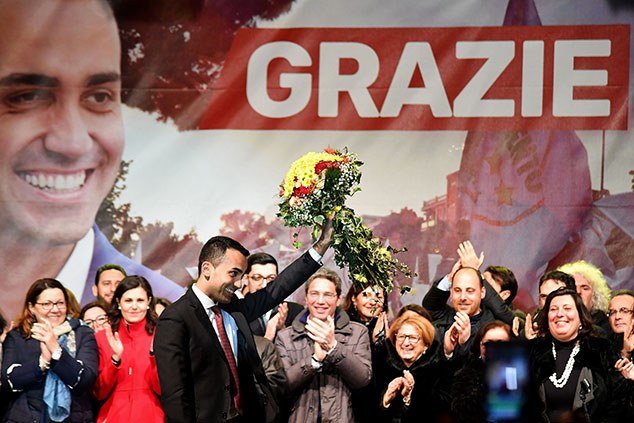
Italy recently went to the polls to vote on a new government. No one party achieved a majority, but the results have been widely hailed as a victory for populists.
To discuss the results and what they mean for Brexit, I spoke to Italian economist Lorenzo Codogno, visiting professor at the European Institute of the London School of Economics, founder and chief economist of LC Macro Advisors, and former chief economist and director general of the Treasury Department of the Italian Ministry of Economy and Finance. So he has a good grasp of what Italian policymakers are likely to be thinking.
“It is difficult to say who will end up as prime minister”, admits Codogno – although we may have to wait a long time to find out. It is likely “to take at least a couple of months for a deal to be struck”.
There are three realistic options:
- An alliance between the two big winners of the election, the Five Star Movement (M5S) and the Northern League.
- A deal between the M5S and the ruling Democratic Party (PD).
- A “broad coalition led by a technocrat”.
Discontent with Europe “certainly played a role” in helping the populist parties do so well, says Codogno. But this won’t have much practical effect – at least not in the short term. While some commentators have talked up the idea of “Italexit” – Italy quitting the euro, or even leaving the EU – this looks “unlikely in the near future”. But if negotiations do lead to a populist coalition between the M5S and the Northern League – the two most Eurosceptic parties – then an Italian departure from the EU “may become a possibility over time”, he warns.
Italy has other things to worry about besides Brexit
Those hoping that the elections results could lead to a softening of the EU’s position are likely to be disappointed – they are probably “irrelevant” to the outcome of the negotiations between the UK and EU-27. While the PD follows the position of the current Italian government, M5S and the Northern League “basically… do not care much” about Brexit. And if a Eurosceptic coalition does gain power and adopts a “confrontational attitude” to the rest of the EU, Italy’s opinion “will count even less than in the past”.
It’s a sobering thought that, compared with the large internal debates over migration, unemployment and future European integration, the EU-UK negotiations “are receiving very little attention in Italy at the moment (and also in most other EU countries)”.
Whatever Theresa May hopes, the fact remains that “Britain will have to meet all the conditions if it wants to get access to the single market”. Codogno is pessimistic about Britain’s chances of getting the “Canada Plus Plus” that seems to be the goal of the UK government at the moment.
He also doesn’t think that that the EU will allow the UK to extend the transition period, which is currently supposed to finish at the end of 2020.
For one thing, even if Brussels did want to do this, any extension “could lead to legal challenges from companies”.
Overall, “the final outcome is likely to be a minimal form of free trade agreement, plus some stronger negotiated links in some areas, such as security, military, and research”, he says.